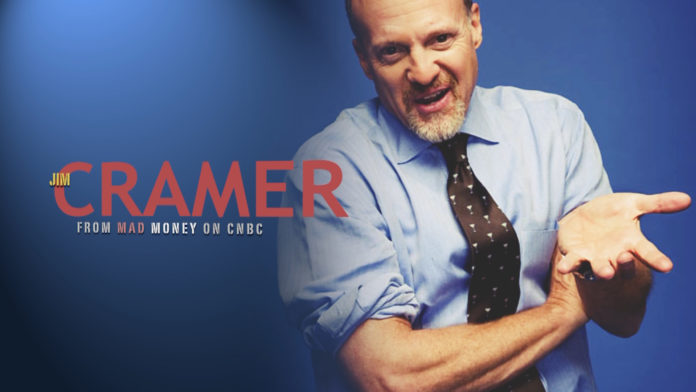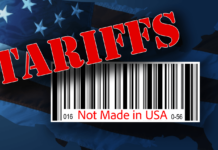Journalists, regulators, politicians and more have joined the discussion of market manipulation since the popular trading application Robinhood temporarily barred Reddit investors from trading shares of GameStop stock after driving up the price in spite of hedge funds that had taken short positions. Short selling is the process of borrowing shares of a particular stock that is anticipated to decrease in value and selling them to available buyers with the intention of purchasing the stock at a lower price to make a profit before returning the borrowed shares. Taking a short position is common among hedge funds, but the strategy has recently been scrutinized for actions deemed as allegedly manipulating the stock market. Personalities like Jim Cramer, host of the CNBC show Mad Money, have frequently weighed in on the Reddit investments, and despite his support of individual investors, an interview from 2006 resurfaced and put his ethics in question as he discussed ways to manipulate the stock market during his time as a hedge fund manager.
Before Cramer became the host of Mad Money on CNBC, he started and managed the hedge fund Cramer, Berkowitz & Company. While managing the hedge fund, Cramer was also a writer for multiple financial news sources like Worth and Slate and appeared on TheStreet.com — where the unscrupulous 2006 interview took place. During the interview, Cramer revealed anecdotal examples of how hedge funds manipulate the stock market should they need a stock to rise or fall. While discussing the volatility of the stock market futures, Cramer stated that certain actions would be necessary in order to get the future price of a stock to fall. “A lot of times when I was short at my hedge fund and I was positioned short, meaning I needed it down, I would create a level of activity beforehand that would drive the futures — it doesn’t take much money,” Cramer expressed. Cramer described these actions as a game that is fun and lucrative if the hedge fund knows what it is doing.
At the time of the interview, the financial industry was nearing the end of a financial quarter, which prompted Cramer to suggest that it is imperative that hedge funds — whether they are positioned long or short — control the market in order to hit their marks. To do this, Cramer proposed fomenting the market, which is creating a sentiment or instigating a course of action to achieve a desired result by feeding fake news to brokerages and reporters to try and control the direction of a stock. In the case of short selling the market, Cramer encouraged creating an impression that a stock is down. “You can’t create — yourself — an impression that a stock’s down, but you do it anyway because the SEC doesn’t understand it.” According to their website, the U.S. Securities and Exchange Commission (SEC) is an independent federal government regulatory agency responsible for protecting investors, maintaining fair and orderly functioning of the securities markets, and facilitating capital formation. Despite Cramer acknowledging that fomenting is a questionable activity that is not allowed, Cramer forged ahead with this endorsement of the action. “This is actually just blatantly illegal, but when you have six days and your company may be in doubt because you’re down, I think it’s really important to foment.” Hedge funds that weren’t willing to manipulate the market using this strategy, he said, should not be in the business of short selling stocks.
Furthermore, given the example of Apple preparing to release their first phone, Cramer explained that the stock was in a perfect position to short and gave a detailed explanation of how he would do it at his hedge fund. By spreading rumors to brokerage contacts that the major phone carriers — Verizon and AT&T — are not interested in picking up the Apple phone. He argued that this is an effective strategy to short the stock and push the price down. Cramer continued to describe that, to keep the stock down, his strategy would also include purchasing puts — a contract to sell a stock at a specified price — to create a sentiment that there might be activity on the horizon for a company’s stock which would benefit the hedge funds positioning by creating anxiety in the market. “These are all what’s really going on under the market that you don’t see,” Cramer stated. The most striking quote from the Cramer interview however came after describing how to manipulate the market. “What’s important when you’re in that hedge fund mode is to not do anything remotely truthful, because the truth is so against your view that it’s important to create a new truth, to develop a fiction and the fiction is developed by almost anybody who’s down.” This interview has recently been removed from TheStreet’s YouTube channel in light of Reddit investors short squeezing hedge funds that were trying to short sell stocks of GameStop and American Multi-Cinema (AMC).
“No One else in the world would ever admit that, but I could care…I’m not going to say it on TV.”
Jim Cramer, Circa 2006 via thestreet.com
In the wake of the 2008 financial crisis, Comedy Central commentator Jon Stewart lambasted Cramer for the 2006 interview, claiming in large part that the ethically questionable tactics that were anecdotally described by Cramer were related to the hidden side bets being made on Wall Street that cost millions of Americans their retirement savings. Stewart highlighted that Wall Street was viewed as having two separate markets — one that is for long-term investors and one that is behind closed doors that has a much larger impact on the financial stability of the markets. While frequently referring to the 2006 interview, Stewart contended that Cramer and CNBC knew about the market manipulation that was taking place behind the scenes and argued that the network did nothing to expose the issues until it was too late and investors lost billions.
Click play below to watch.
The Daily Show with Jon Stewart
Get More: Daily Show Full Episodes,The Daily Show on Facebook,Daily Show Video Archive
Stewart raised the concern that Cramer and the media at large, but specifically CNBC, were protecting companies like AIG, Bear Stearns, and more, and not making a bigger issue about the manipulative activities that were taking place which ultimately played a role in the stock market crash. Years later in 2021, market manipulation continued to be on full display with certain brokerages restricting trades of certain stocks because individual investors were short squeezing hedge funds. Robinhood, a popular trading app that has expanded access to the market to individual investors, was at the center of the manipulation as they restricted users from trading shares of GameStop and AMC after the stock skyrocketed in January of 2021. Cramer commented on the situation by sticking up for the individual investors in another interview appearing on TheStreet.com stating that individual investors must be protected from being restricted in their investment decisions.
Robinhood had already been in the spotlight of regulatory investigations after settling with the SEC to pay a fine for not providing investors with the best stock prices and not disclosing important information to traders. Similarly to his calls for investigations into companies like AIG in 2009 when speaking with Jon Stewart, Cramer’s calls for investigations into the manipulations of Robinhood were overshadowed by his willful actions to manipulate the market with his hedge funds and encouraging other investment groups to do the same. This kind of activity fetters investors’ confidence in the stock market and despite Cramer’s role as a financial journalist, the fundamentals of financial reporting have been replaced with glamour and entertainment — a concern that Stewart expressed during their 2009 interview.
Whether it is the securities industry, regulators, the federal government, media personalities, or brokers themselves, market manipulation has run rampant for decades. Large hidden transactional forces control sectors of the market for short-term profit, oftentimes at the expense of the individual investor and this was made apparent in the way Jim Cramer flippantly discussed strategies to manipulate the stock market to advantage his and others hedge funds. Arguably, Cramer is first and foremost a cheerleader for the securities industry, rather than a watchdog for the average investor in an industry riddled with fraud and deceit.
In essence, the topical conversation surrounding market manipulation is not new, but attempts to control the market one way or another are becoming increasingly apparent. Despite his fame and knowledge of the intricacies of the stock market, the ethically enigmatic decision-making of Jim Cramer while working as a manager of a hedge fund illuminates just one part of the dishonesty and corruption of the securities industry. Whether hyperbolic or anecdotal, Cramer encouraged that when a broker is in the hedge fund business, it’s important to never do anything remotely truthful or ethical. In order to achieve success while short selling, he indicated that a fiction must be created and spread in order to reach a desired outcome with the stock that is being hedged.
These actions may have made Cramer a billionaire, but for many average investors, market manipulation has jeopardized or put into question millions of retirement futures. Today, Cramer is a media personality — a financial journalist — who recommends strategies and stocks to buy and sell while investors continue to get fleeced by market manipulations that are out of their control and similar to the actions taken by Cramer’s hedge fund and from thousands of other brokers and investment groups.













